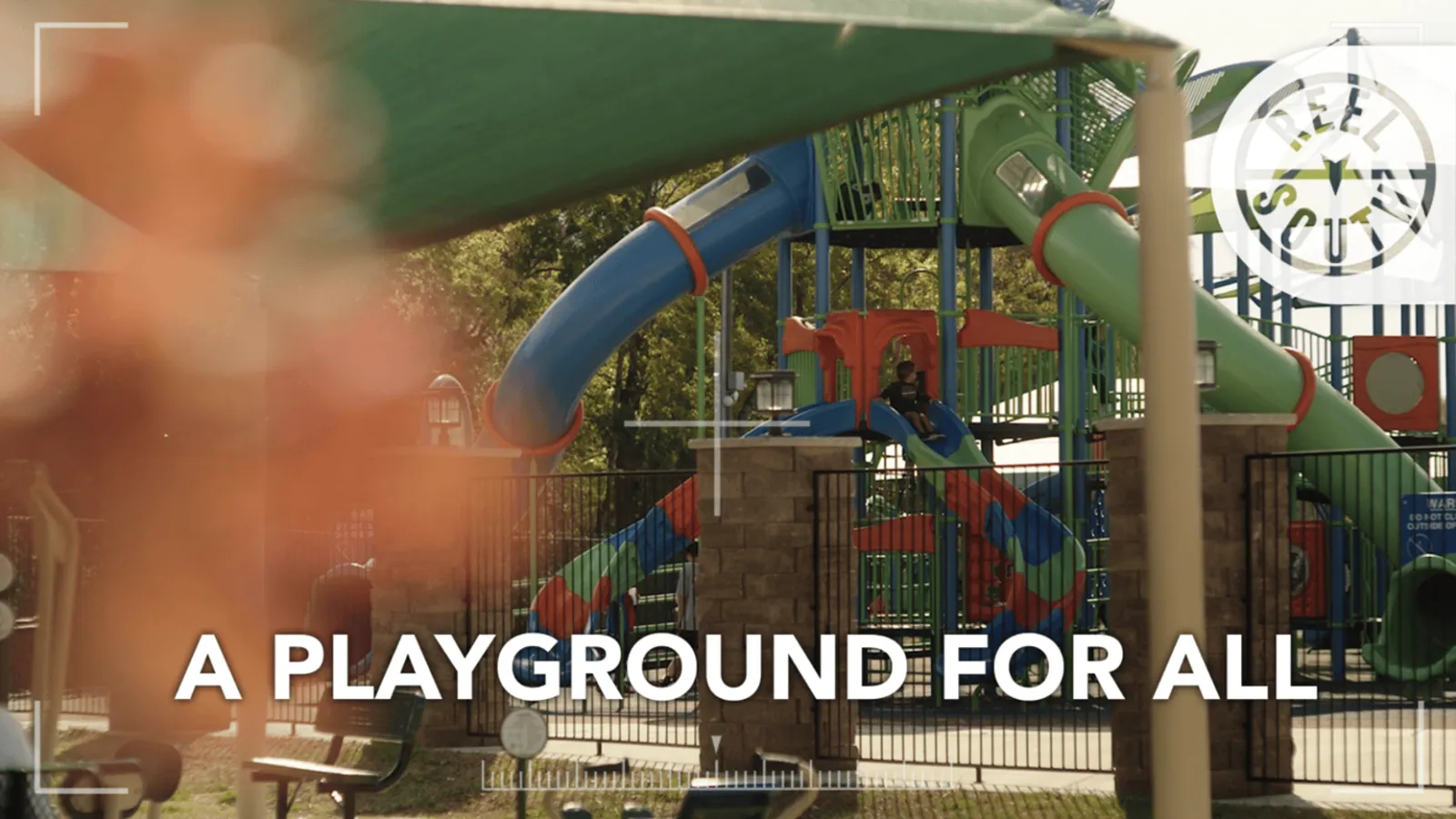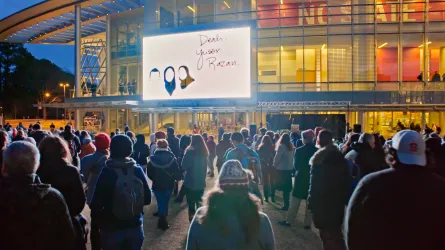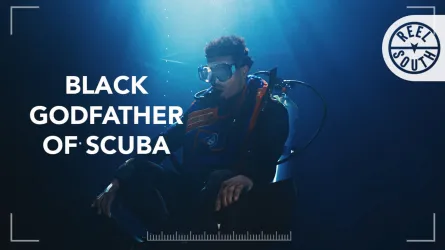"Free Play" is a documentary created by Alex Astrella that highlights how a mother’s perseverance in the face of adversity led to the creation of Middle Tennessee’s largest all-inclusive playground. The film, now streamable on our YouTube account, highlights Karen's desire to provide an inclusive place for her daughter Tabitha, who was a wheelchair user. She spearheaded the creation of the Gallatin Miracle Park, which has several features that cater specifically to children with physical and mental disabilities and facilitates authentic interactions between children with and without disabilities.
After the premiere of the film, Reel South digital producer Heather Nunerley connected with Alex to ask a few behind-the-scenes questions to learn more about the creation of "Free Play." Stream the film on YouTube today.
Heather: How did you find Karen and Tabitha's story to begin creating this documentary?
Alex: I found Karen and Tabitha's story through researching the Gallatin Miracle Park-which I first saw on a local news segment right when I moved to Nashville. I thought the park looked so neat on, and when I dug in and found out the personal connection that made it one of a kind, I knew the story had to be made. From the first time I talked to Karen on the phone, I also knew that her and Tabitha's story had to be central to the narrative of the film.
Heather: Were there any moments you wish you were able to capture during the creation of the film?
Alex: I'm overall very proud of what we captured and what made it into the final cut, but I do wish we were able to capture more of the natural interactions between the children at the park. Fun fact, the boy that Avery plays with in the middle of the film was actually a stranger she met just that day. And that's really the essence of the film-showing how the park can facilitate inclusion so naturally.
Heather: Have you seen a response or rise in all-accessible parks like the Miracle Park?
Alex: I think since making "Free Play," I've definitely seen/been more aware of accessible playgrounds. To be fair, none have been as grand as the Gallatin Miracle Park, but it is still really cool to see many states creating parks with accommodations in mind. For example, when I was in both Dubuque, Iowa, and St. George, Utah, promoting "Free Play" during its festival run, the locals directed me to the accessible parks in their area. Both were so crowded and full of neurotypical and neurodivergent children. So, seeing that inclusion generalize to other parts of the country is awesome.
Heather: What has been the response to your film since its creation? I teared up myself, so thank you for that.
Alex: Well, first of all, thank you! The response has been amazing. I knew going into the filming process that it would be a special film, but I had no idea the reactions would be as positive as they have been. I think so many people can resonate with Karen and Tabitha's story. As her memory and soul live on with the park, I think that's something that myself and many others can latch onto.
Heather: What was the #1 challenge in creating this film?
Alex: The number one challenge was definitely the fact that since this technically started as a student film, I had little in the way of resources and budget at the beginning of the process. I think that through perseverance and finding the right people, I was able to overcome those challenges. I'm so thankful to my crew, our amazing subjects, my family, and the Vanderbilt staff for helping me see the film to completion. I know I had the vision for "Free Play," but that vision would have never made it into a final product without the support of those mentioned.
Heather: What advice would you give your younger filmmaker self?
Alex: I'd tell my younger filmmaker self to be patient. It will all work out. So many times, and even in the creation of "Free Play," the perfectionist in me wants to make sure everything goes according to plan. However, I've learned that with documentaries especially, almost nothing goes as planned, but that is the beauty of it. I would want my younger filmmaker self to know that the race won't be a straight line, and that's fine. It's all the turns and obstacles on the way will make crossing the finish line that much more satisfying.
Heather: What do you have to brag about right now? Any new projects to share?
Alex: Gosh, I've been working on not bragging as much. As a filmmaker, I constantly have to check my ego! In all seriousness, though, I am working on a feature documentary about the courage and resilience of inmate firefighters who want to give back to the community they once took from called "Trial By Fire." I am also about to release my newest short documentary, "Extraordinary Character," which chronicles the ability of a neurodivergent theater troupe to foster inclusion through their theatrical adaptation of the children's book Stellaluna. I was also recently featured in the Vanderbilt Magazine for using "Free Play" as my master's thesis project. I've also been working to build my production company, Blu Star Productions, which acts to empower other neurodivergent filmmakers like myself.
Category
Share


